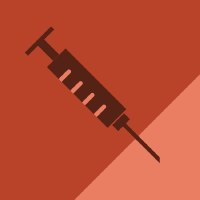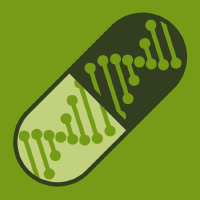Topic Menu
► Topic MenuTopic Editors


Advances in Vaccines and Antimicrobial Therapy—2nd Edition
Topic Information
Dear Colleagues,
This topic is a second edition of “Advances in Vaccines and Antimicrobial Therapy”. Our first edition has published 20 papers with a total of 37474 views. You can read the latest papers at: https://www.mdpi.com/topics/X66IH7XM49. Now we have set up a second edition and look forward to receiving more submissions.
The fields of prevention and treatment of infectious diseases have been gaining momentum after the outbreak of the coronavirus pandemic, with several advances both in vaccine technology and in the development of new antimicrobials. The usefulness of monoclonal antibodies has been tested, along with several old and new compounds with antiviral activity, but the search for new avenues, combining diverse strategies and reexamining older drugs for potential new activities, is quickly evolving. Interactions of drugs with the local microbiota, combinations of systemic approaches, targeting immune defense mechanisms together with arresting microbial host invasion, refinements in nano-formulations, drug delivery, rapid genotyping of microorganisms, and engineering of bacteriophages in the fight against multidrug resistance are just some of the areas in which breakthrough research is expected to bring significant advances in the near future.
The aim of this Topic is to offer an updated view of the advances in all the fields of antimicrobial therapy and prevention. This Topic collection invites contributions of research articles, reviews, and meta-analyses, exploring the new horizons of antimicrobial therapy and vaccine development. Both in vitro and in vivo studies, field studies, and reports, as well as bold new hypotheses based on original observations, are also welcome. We, as Editors, expect both academic research institutions and industry research to be represented in this collection on issues of primary relevance for health systems and individual safety in the near future.
Dr. Raffaele D’Amelio
Dr. Roberto Paganelli
Topic Editors
Keywords
- drug delivery
- phage therapy
- antibiotic resistance
- antivirals
- vaccine technology
Participating Journals
| Journal Name | Impact Factor | CiteScore | Launched Year | First Decision (median) | APC | |
|---|---|---|---|---|---|---|

Biomolecules
|
4.8 | 9.2 | 2011 | 19.4 Days | CHF 2700 | Submit |

Cells
|
5.2 | 10.5 | 2012 | 16 Days | CHF 2700 | Submit |

International Journal of Molecular Sciences
|
4.9 | 9.0 | 2000 | 20.5 Days | CHF 2900 | Submit |

Parasitologia
|
1.5 | 2.4 | 2021 | 18.5 Days | CHF 1200 | Submit |

Pathogens
|
3.3 | 6.8 | 2012 | 13.5 Days | CHF 2200 | Submit |

Vaccines
|
3.4 | 9.9 | 2013 | 19.6 Days | CHF 2700 | Submit |

Biologics
|
- | 7.2 | 2021 | 23.5 Days | CHF 1200 | Submit |

Microorganisms
|
4.2 | 7.7 | 2013 | 15.2 Days | CHF 2700 | Submit |

Preprints.org is a multidisciplinary platform offering a preprint service designed to facilitate the early sharing of your research. It supports and empowers your research journey from the very beginning.
MDPI Topics is collaborating with Preprints.org and has established a direct connection between MDPI journals and the platform. Authors are encouraged to take advantage of this opportunity by posting their preprints at Preprints.org prior to publication:
- Share your research immediately: disseminate your ideas prior to publication and establish priority for your work.
- Safeguard your intellectual contribution: Protect your ideas with a time-stamped preprint that serves as proof of your research timeline.
- Boost visibility and impact: Increase the reach and influence of your research by making it accessible to a global audience.
- Gain early feedback: Receive valuable input and insights from peers before submitting to a journal.
- Ensure broad indexing: Web of Science (Preprint Citation Index), Google Scholar, Crossref, SHARE, PrePubMed, Scilit and Europe PMC.
Related Topic
- Advances in Vaccines and Antimicrobial Therapy (21 articles)

